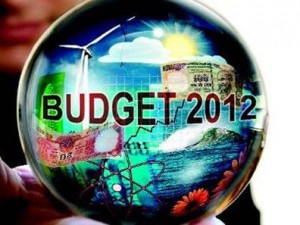Fiscal deficit, energy crisis and inflation key challenges for budget 2012-2013
Monday, April 30th, 2012 8:26:50 by Fayyaz Yaseen
Fiscal deficit, energy crisis and inflation key challenges for budget 2012-2013
ISLAMABAD: (30 April 2012) Speakers at a pre-budget seminar identified fiscal deficit, increasing inflation, energy crisis and debt servicing as the key challenges in forthcoming budget 2012-13.
They also suggested government to increase revenues by widening of tax base, applying minimum tax regime, reduce corporate tax rate, taxation on remittances, targeted subsidies, ensuring energy sustainability, macroeconomic reforms,
reduction in circular debt and ensuring budgetary safeguards for industry after opening up of trade with India. They experts were discussing at ‘pre-budget seminar 2012-13’ organized by Sustainable Development Policy Institute (SDPI) here on Monday. Tahir
Dhindsa, Head SDTV and Editor of Economic Bulletin at SDPI moderated the proceedings and maintained that government has failed on many agreed macroeconomic benchmarks committed in budget 2011-12 to international financial institutions.
Chairing the session, Dr. Abid Qaiyum Suleri, Executive Director, SDPI spoke on issues related to energy and circular debt. He said, coming budget must cater the long term and short term energy needs as current energy mix in Pakistan
is not sustainable which relies mostly on oil consumption. ‘Costly energy increases the cost of production which subsequently makes it hard to compete with regional economies based on cheaper fuels like coal,’ he added.
Mr. Sakib Sherani, Former Principle Economic Advisor, Ministry of Finance said, government does not have the fiscal space available for coming budget after the sharp compression of resources after NFC. He said, center has left
with only 30-35 percents of divisible pool that also has to cater debt servicing, defence, federal PSDP and many other expenses. Talking of flaws in NFC he said, onus must be placed on provinces arguing that, center can only service NFC if provinces increase
revenues and implement integrated Value Added Tax (VAT). He was of the view that forthcoming budget has become irrelevant in absence of obligation for reforms by international financial institutions, overestimation of revenues and underestimation of expenditures
in budget 2011-12 and failure to implement agreed macroeconomic reforms.
Dr Vaqar Ahmed, Research Fellow/Head, Economic Growth Unit, SDPI demanded to reconfigure budget from fiscal to human capital declaring that, ‘budget making process has become mere an accounting exercise for government officials
instead of a planning framework for socio economic development in the country. He said Pakistan has no debt sustainability strategy and over 30 % of current account expenditure is spent on interest payment.
He gave a brief overview of subsidies and said, time has come to move toward targeted subsidies that benefit poor adding that only 5 percent of subsidies are actually targeted at poor. He also proposed various recommendations for
forthcoming budget such as practising minimum tax regime, reduction in corporate tax, budgetary safeguards for industry after opening up of trade with India, reforms in water and energy sector and taxation on remittances.
Mian Ramzan from Islamabad Chamber of Commerce and Industry stressed on the need for consistency in economic policies and putting focus on promoting entrepreneurship in coming budget. He talked of undue burden on existing tax
payers and urged to increase tax base by giving incentives to people.
Short URL: https://www.newspakistan.pk/?p=21026

















